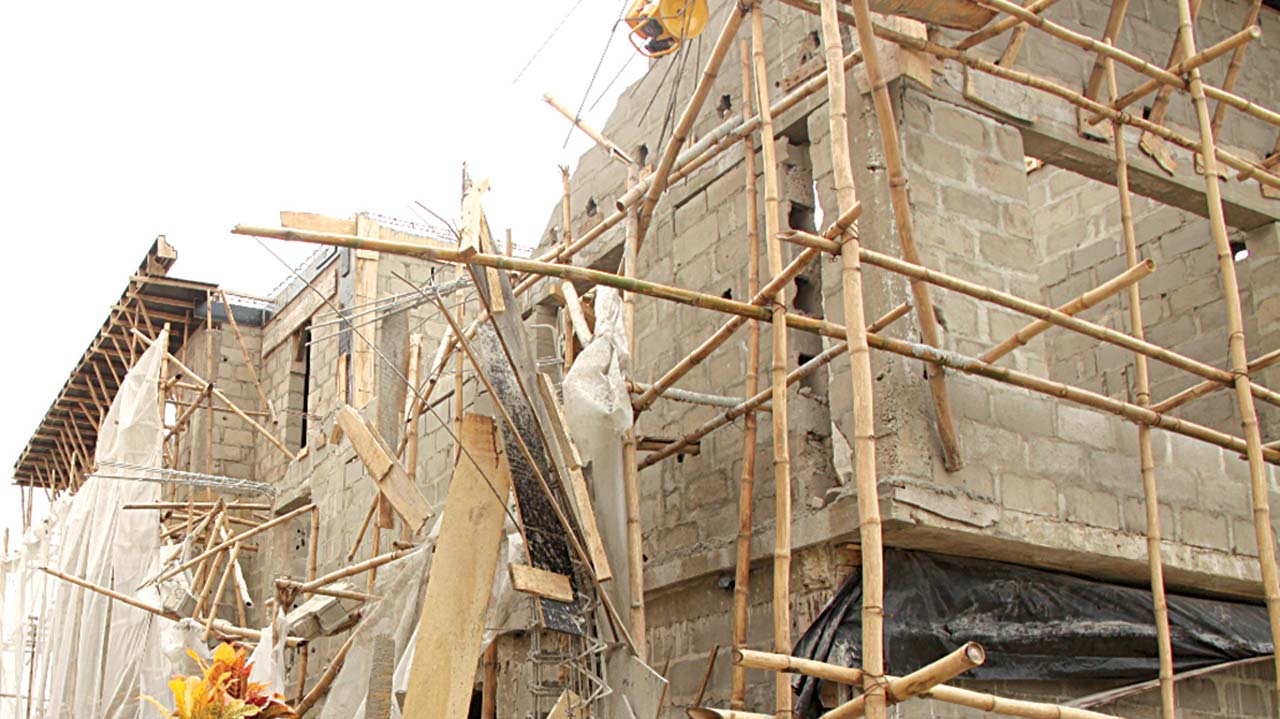
Stakeholders have blamed the poor quality control prevalent in the construction industry of the Nigerian economy on lack of government policy, and lack of will to enforce compliance.
The stakeholders, which included engineers, technician, builders, who gathered at the Lafarge Africa Plc, building education forum last week, also said the development is responsible for the dearth of ancient structures in the country.
According to them, the absence of effective policy is responsible for the constant buildings collapse, which spate had increased in the recent time due to the shoddy nature structures are being erected.
Discussants at the forum noted that the real estate sector had become an all-comers affair to the extent that practically any charlatan could easily become an operator.
A former Head of Department, Building, University of Lagos, Prof. Godwin Isoro, argued that the frequent building collapse being witnessed are government-induced.
According to him, “As a moderator and regulator, government has failed in this; the existing framework and legislation have also failed, and until the right thing is done, there would be more building collapses.”
To arrest the situation, he insisted that only professionals should be allowed into the construction industry, adding that there is already a conflict in the services of professionals, especially between the structural and civil engineers.
Isoro, a registered civil engineer, noted that the incidence of collapsed buildings is not new, as it dated as far back as 20 years ago, but has grown in frequency, saying, “Building collapse is a very serious issue and it has been on over 20 years. The difference now is that the frequency is high and the damage to lives and property equally huge.”
He further said the use of substandard materials is compounding the issues, as 95 per cent of blocks produced in Nigeria are sub standard because the right quality of cement was not used.
Also blaming the government, the Chairman, Ikeja brach of the Nigerian Society of Engineers (NSE), Akintayo Akintola, accused government of being more reactive than proactive.
He said: “regulators wait until a structure is almost finished before coming in to do audit, rather than starting from the foundation level.” He noted that because the value system has been strongly eroded, things will continue to go wrong until government did the right thing.
Citing the United Kingdom as an example, Akintayo noted that no individual builds any structure without the government’s approval, adding that approval is sought at every state of the construction, including fixing the gates.
However, the Chairperson, Lagos Satate chapter of the Nigerian Institute of Builders, Mrs Adenike Saed, defended that government alone is not to blame for all the wrongs in the industry, seeing as there are already existing regulations to guard against poor quality control.
Saed, also an assistant director in the Lagos State public service, what is missing on the part of government is not policy, but implementation. In her opinion, what is needed the most to ensure safety in the industry is separation of powers, whereby each are of the professions involved stuck to their respective responsibilities, adding that the use of charlatans are responsible for the incidences that occur in the sector.
Citing Lagos State for instance, she said: “Lagos State has put in place requisite laws and regulations but what is lacking is the sincerity of purpose to implement them.”
She added that this is why the Institute is working with the state to ensure that each profession played their respective roles, adding that the “present administration is determined to reorganise all the agencies under construction, and bringing in more professionals to man the industry.”
The anchor of the forum, Alero Edu, had explained that the essence of the educational forum is to build or construct safely, adding that Lafarge is educating the stakeholders to improve their building habits with a view to transforming the building and construction industry.
According to her, “transformation implies that there is something wrong, therefore, those bad habits must change. We must use professionals and stop cutting corners by using quacks.”



